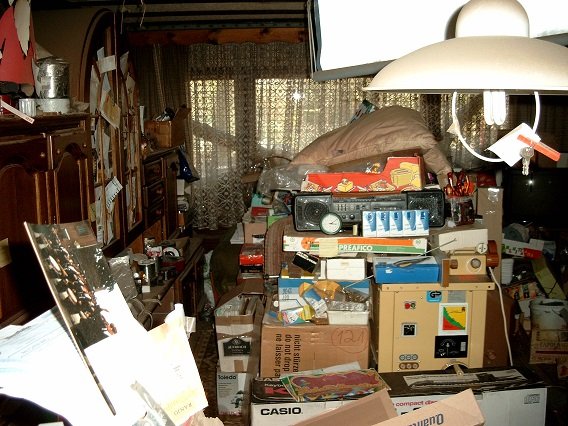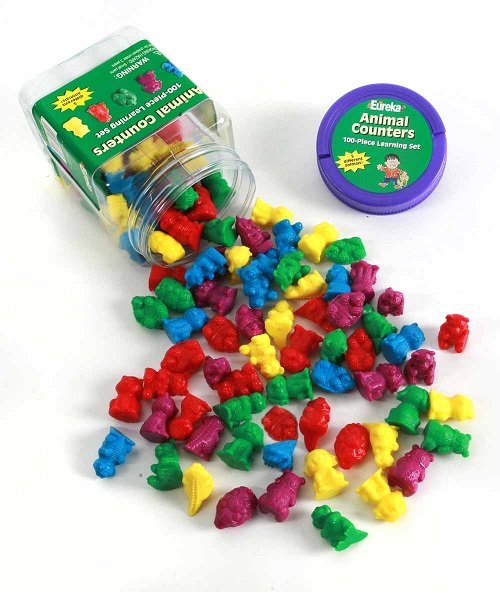Less is More: Why It's Better to Not Own Many Things
We live in an era dictated by consumerism. The idea that we need more things is constantly being pushed by advertisements on TV and online, by billboards, clothing with brands plastered on them, and by the people close to us describing shopping trips and the new items they've purchased.
Most people will agree that the moment of obtaining something new brings some amount of joy. It is that excitement of being able to choose and then grab it like a prize we have earned. It is comparable to the feeling of an achievement of sorts. And then it is taken home to be displayed or stashed among the other treasures we have found throughout our lives. It adds value to our lives, so they say.
I remember being at an ex's house when they were going through a grandparents' items after he died. And the mom made a remark about how sad it was that the pile of t-shirts, suits, and trinkets was all he had to his name.
But why is that seen as sad? Why is a person's life judged by the items they have acquired and not the memories they have made or the experiences they created? This is a notion created by big business corporations, ingrained into our lives by everything around us, by our parents, and by their parents before them.
There's a common saying I've been hearing lately: “Spend money on experiences, not things.” And I have seen the same people that say that buy new clothing every week and buy redundant items, items that serve a purpose that is already met by something else they own.
There are children with a room full of toys and adults with garages they can't access because there's too much stuff.
It goes beyond the idea of physical clutter. Having so many items creates clutter in your mind. It is one more thing to worry about. Even if you ignore these objects in boxes, you'll see them again when you want to move things around and when you move to a new place. You have things that take up shelves and wall space just to feel that void in the area. When you need to access the outlet behind the bookcase you move all these things you haven't looked at for months just to do so, and then you put them back just to have them there gathering dust, slowly deteriorating for another few months or more, still ignored.
When you fill your life with things, there is something else missing. The desire to have things comes from another reason and that reason is different for each person. Do you simply acquire things because it's what people around you are doing? Do you want the best things because it adds to the idea of your own self-worth? And why then are objects involved so deeply in your sense of self?
Consider if you didn't have 50 books or 50 video games, but you only had one, would you read it or play it? Ask yourself again, would you look at them all if you only had five? The idea is that if you have less things you pay more attention to them. When you use them then they do add value to your life. Collecting is one thing, but unless a collection is something that you look at often or share with people, is it really a collection or just hoarding items because you can?
If a child has hundreds of toys, how many do they play with? How many do they play with for weeks on end? Maybe a few. If a child had ten toys, wouldn't you say that those ten toys would make the top ten? If there was only one, wouldn't that be the favorite? And if there were none, could a book, could a ruler, could an eraser become a toy? Keep in mind that the first children's toys were usually wooden or simple cloth characters, not the elaborate pieces we see today. The focus on childhood did not start until the 1800's, and children have found ways to entertain themselves since the beginning of time. There is no need for all these “developmental” or “educational” toys. You can use a pile of rocks to teach counting instead of a set of “counting bears”.
With less things comes the necessity to be creative. If you were stranded on an island with only your clothes and a machete, you would need to think outside of the box to build what you need, and you would only afford your effort to the things that add to your existence right in that moment.
Having items so readily available in stores and online takes away from the time we would otherwise think, “Do I really need this?” Owning things takes away from the life that exists beyond the objects we own.
Having less gives more value to what you do have. It gives you the time to not worry about the upkeep of things around you, so you can put more emphasis on what's before you. This way of living life and valuing each individual thing creates the shift that each thing holds value. And it is that mindset that will prevent the world from being seen as a place for using and discarding.


Yeah, you're right about the abundance of options in owning so many things. Thing lose their importance since there are so many and then they don't matter. Kinda like ""The death of one man is a tragedy, the death of millions is a statistic."